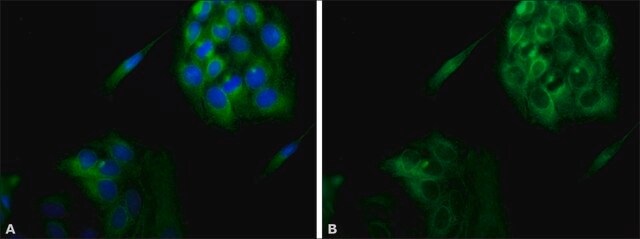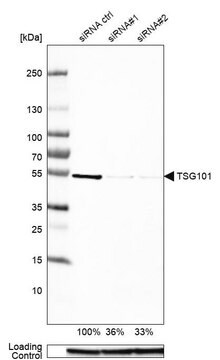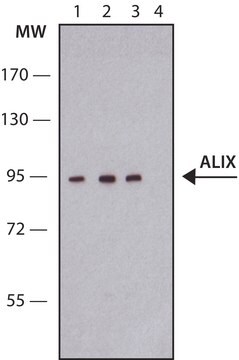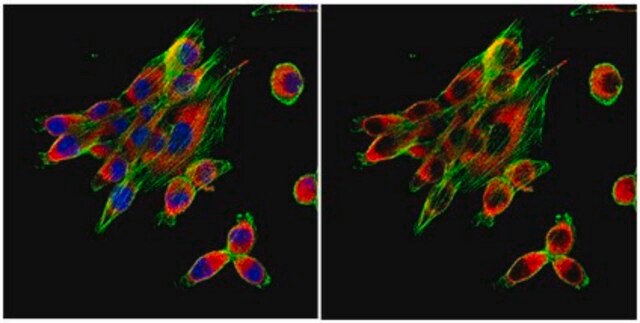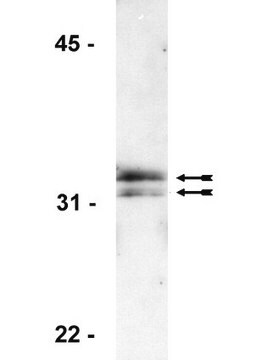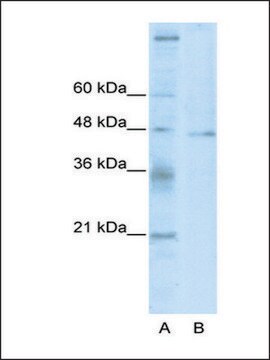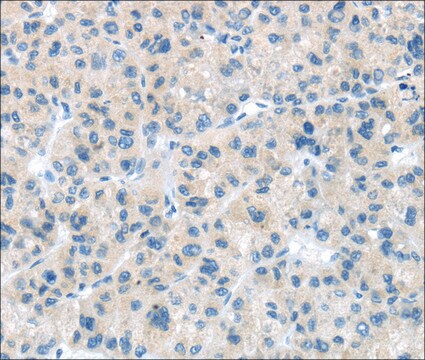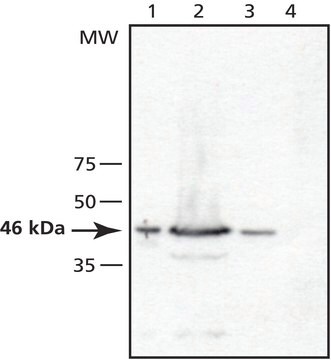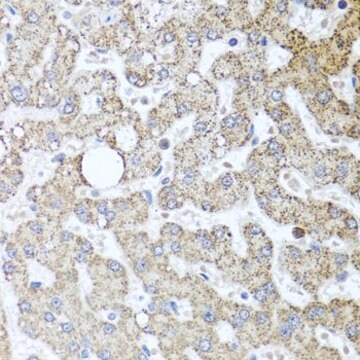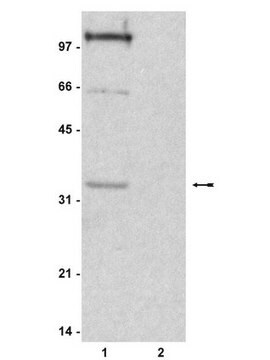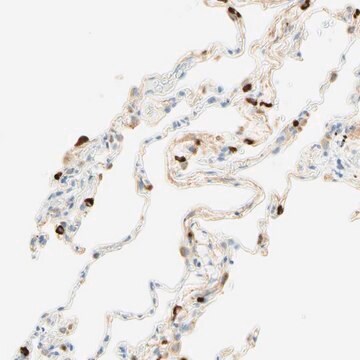T5701
Anti-TSG101 antibody produced in rabbit
~2 mg/mL, affinity isolated antibody, buffered aqueous solution
Synonym(s):
Anti-Tumor Suspectibility Gene 101
About This Item
Recommended Products
biological source
rabbit
Quality Level
conjugate
unconjugated
antibody form
affinity isolated antibody
antibody product type
primary antibodies
clone
polyclonal
form
buffered aqueous solution
mol wt
antigen 46 kDa
species reactivity
rat, mouse, human
concentration
~2 mg/mL
technique(s)
western blot: 0.5-1 μg/mL using cell lysates of rat fibroblast Rat-1 and mouse fibroblast NIH3T3 cells
western blot: 2-4 μg/mL using cell lysates of human A431 cells
UniProt accession no.
shipped in
dry ice
storage temp.
−20°C
target post-translational modification
unmodified
Gene Information
human ... TSG101(7251)
mouse ... Tsg101(22088)
rat ... Tsg101(292925)
General description
Immunogen
Application
Biochem/physiol Actions
Physical form
Disclaimer
Not finding the right product?
Try our Product Selector Tool.
recommended
Storage Class Code
12 - Non Combustible Liquids
WGK
WGK 1
Flash Point(F)
Not applicable
Flash Point(C)
Not applicable
Personal Protective Equipment
Choose from one of the most recent versions:
Already Own This Product?
Find documentation for the products that you have recently purchased in the Document Library.
Customers Also Viewed
Our team of scientists has experience in all areas of research including Life Science, Material Science, Chemical Synthesis, Chromatography, Analytical and many others.
Contact Technical Service